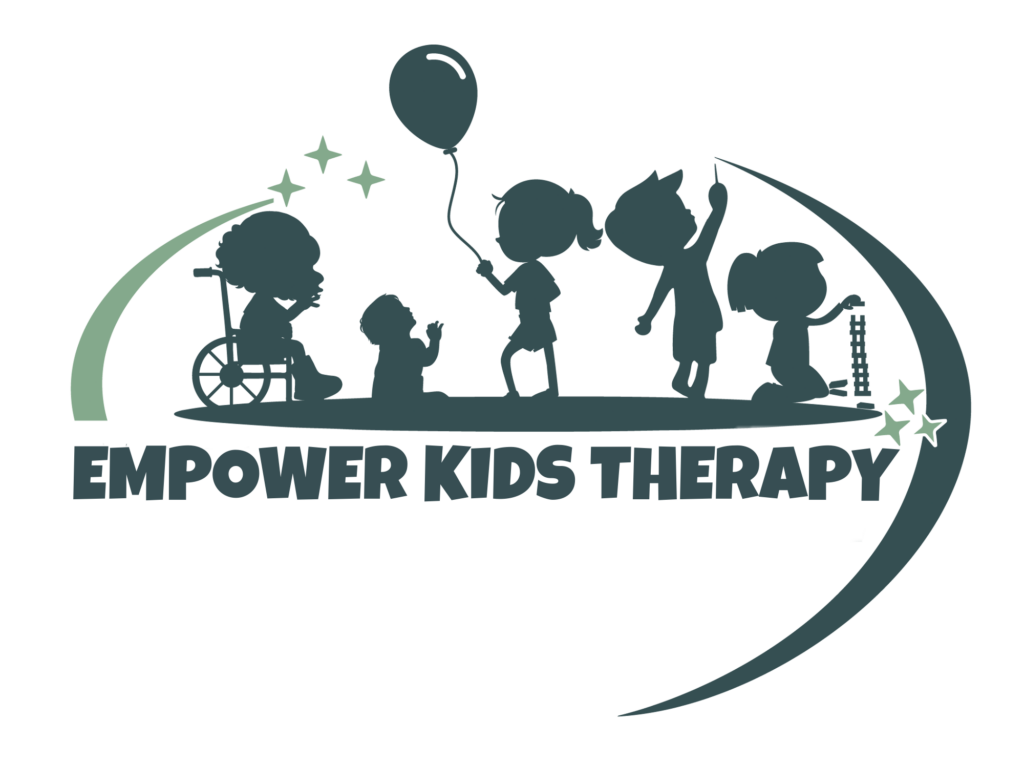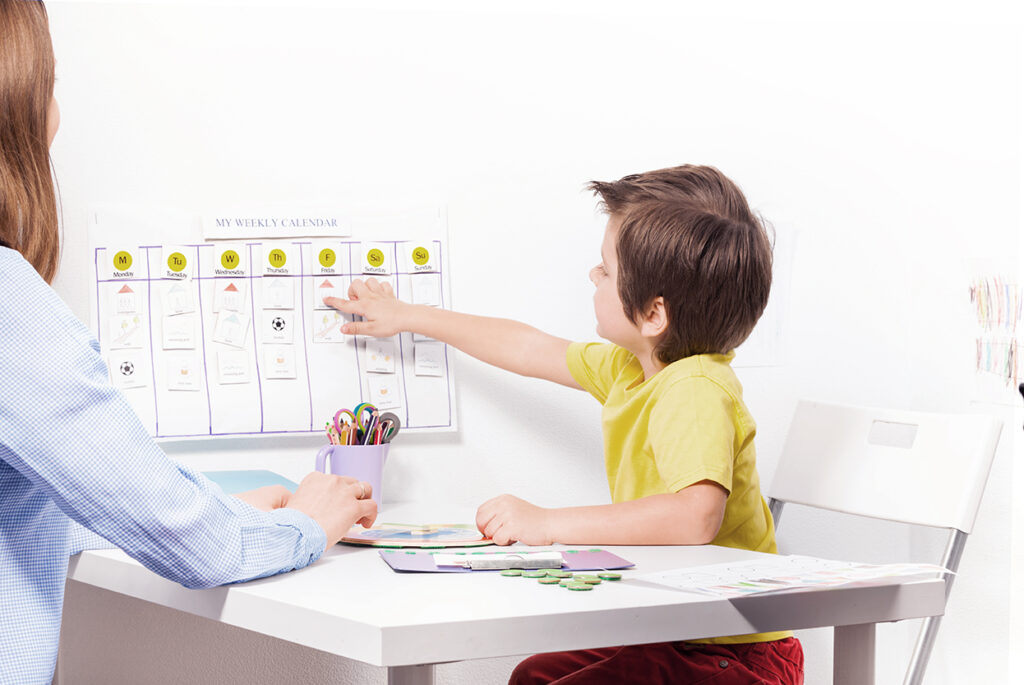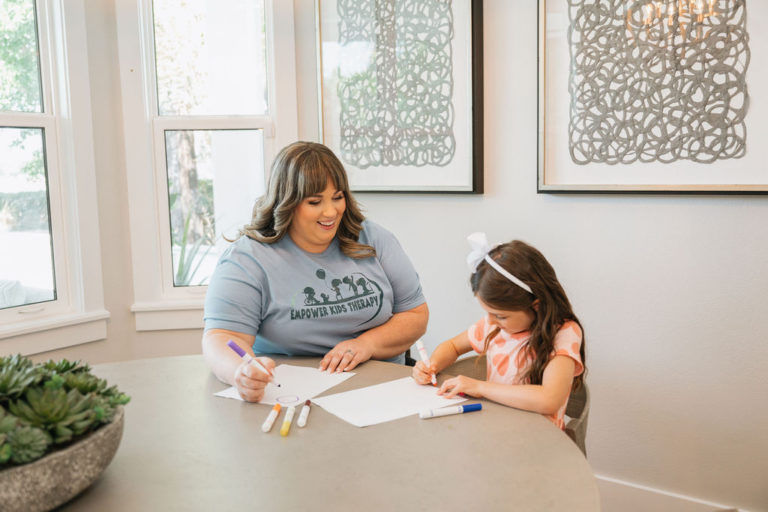There are many mixed feelings about New Year’s resolutions. But goal setting can be constructive, especially with your child! Over time, we see improvement for lasting change. It’s like your child’s growth – they won’t sprout 1 foot overnight. You may not realize any change until many months later when you go to your doctor for a check-up. Suddenly, they’re inches taller! Setting goals is a good way to see progress with measurable outcomes.
The benefit of setting occupational therapy-specific goals is for parents and children to work towards feeling confident in navigating daily life with less struggle. It’s a commitment to achieving change together so your family joyfully experiences life.
Choosing A Goal
What have you and your child been struggling with recently? How will achieving this goal improve your family’s life? Can you seek help from outside sources to achieve this goal? (See below for O.T. professional help from Empower Kids Therapy!)
It is helpful to invite your child to set the goal together so they feel involved and accountable.
For younger children
Sit and talk with them in broad terms. Awareness of what they are working towards can help with achievement.
For older children
Ask them for direct input. They may already have ideas on things they would like to work towards. As a team, you can make a plan.
Common New Year’s Goals
- Independently tie shoes
- Calmer exploration of new foods at at the dinner table
- Learning a specific social skill like maintaining a conversation about a non-preferred topic, or asking a peer question about themselves
- Improving calming strategies when my child is frustrated
- Working on handwriting skills
- Introducing specific new foods into my child’s diet
- Sticking to a structured bedtime routine
Things To Remember About New Year’s Goals
1. Share Your Goals
Discuss goals with your family, therapist, or teacher. Taping multiple sources can help with brainstorming and goal achieving.
Write your goals down on paper. Creating awareness helps with accountability. Use the worksheet below to help you get started!
2. Incorporate Play
Play is a natural and instinctive way for children to learn and explore the world around them. Play can be a valuable tool in creating positive associations, decreasing stress, encouraging exploration, and fostering a healthier relationship with the goal you are introducing.
3. Goals Involve The Entire Family
Improving upon your chosen goal isn’t just for your child. It’s a team effort to achieve and a team win when successful! How can you, as the caregiver, help implement strategies for change?
4. Be Specific
A goal such as “I want my child to eat new foods” is too broad to have real impact. Is there a certain food your child has been avoiding? Green vegetables perhaps? Try specifying your goal to “I will introduce broccoli, zucchini, and spinach into my child’s diet.”
5. Be Realistic
You know your child’s capabilities best. Is what you have outlined achievable? Creating goals that are too ambitious can discourage and cause frustration. Focus on small wins!
6. Be Patient
Change takes time. We can’t usually swim without our guardian (and floaties!) the first time we are shown how to do it, right?
Reiterate your goals often in a variety of ways to allow your child time to digest it and act upon it.
7. Be Perceptive and Check In
Stay aware of the situation and how things are progressing. Schedule in time for reflection. What is working? Acknowledge success! What could be improved? Identify helpful adjustments.
8. Stay Positive
Your child is very perceptive. Your positivity (and negativity!) is apparent in language, tone of voice, body language, etc. Be sure to show them suggestions or encouragement in a loving, positive way.









